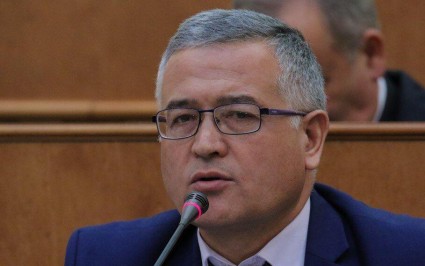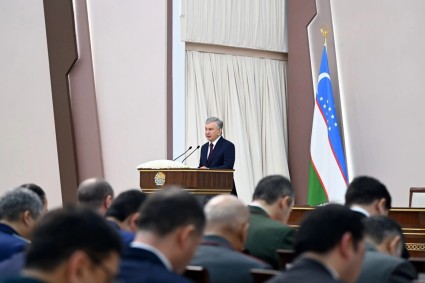On July 26, Tashkent hosted an international conference “Afghanistan: security and economic development”, which was attended by special envoys for Afghanistan of various countries, the closest neighbors of Afghanistan, the countries of South and Central Asia, the Middle East, the European Union, the United States, as well as a delegation of the interim government Afghanistan.
Later, the Foreign Ministry published a statement by the host country of the international conference on Afghanistan.
“For the first time, a major international forum on Afghanistan was held, which is not limited to political statements, but is focused on strengthening peace, stability and economic restoration of the state in the interests of the entire Afghan people, its neighbors and the world community. The parties expressed respect for the sovereignty, independence and territorial integrity of Afghanistan and reaffirmed their commitment to its development as a peaceful, indivisible, independent, economically developing state, free from terrorism and drug crime,” the statement said.
“The conference participants expressed a common understanding that today the main priority should be the revival and strengthening of the Afghan economy as an important factor in achieving lasting peace in this country. It is necessary to promote the integration of Afghanistan into interregional economic processes, to promote the implementation of socially significant and infrastructure projects, including the formation of transregional transport, energy and other corridors.”
“Officials of the government of Afghanistan and heads of other delegations noted the importance of the initiatives put forward by the President of Uzbekistan, including the Termez-Mazar-i-Sharif-Kabul-Peshawar railway project, the laying of the Surkhan-Puli-Khumri power line, the creation of the Termez Cargo transport logistics hub, as well as the transformation of the training center in Termez into an educational cluster for training personnel for Afghanistan.
In addition, the participants supported the opinion of the Uzbek leader on the need to encourage and support the steps of the Afghan government to peacefully develop the country, improve the socio-economic situation, establish friendly relations with neighboring states and mutually beneficial cooperation with the international community.
The participants reacted with great attention to the statement of the Acting Minister of Foreign Affairs of Afghanistan on severing ties between the new authorities of the country and various terrorist groups, primarily the Islamic State. The Afghan official said that the Afghan government ensured security, stability and measures are being taken to provide public and social services to the population.
The importance of fulfilling by the caretaker government of Afghanistan the key requirements of the world community to form a government based on broad representation, ensuring women's rights and access for Afghan girls to receive a full-fledged school education was emphasized. In turn, this will be a fundamental condition for the completion of the process of national reconciliation in Afghanistan.
The head of the Afghan delegation told the forum participants that the Afghan government was seriously considering the concerns expressed by international partners regarding state building and the realization of human rights and interests, including the rights of women and national minorities. The Afghan side noted that the country's government was pursuing a "zero tolerance" attitude regarding drugs and corruption. The participants took note with satisfaction of the confirmation by the government of Afghanistan of its earlier commitments to prevent the use of the territory of this country against the security interests of other states.
Expressing deep concern over the deteriorating socio-economic and humanitarian situation in Afghanistan, the participants expressed confidence in the need to consolidate the efforts of the international community aimed at providing humanitarian and economic assistance to the Afghan people, restoring the country's national economy as a whole.
The delegates also noted the consistent efforts of the United Nations and its specialized structures to provide humanitarian assistance to the Afghan people and spoke in favor of continuing assistance programs.
The participants reiterated the importance of unfreezing Afghanistan's financial assets abroad, which should be directed by the country's government to address socio-economic and humanitarian issues, problems in the areas of health and education, meet the needs and requirements of the entire 35 million Afghan population, and implement significant investment projects.
“Readiness was expressed to continue close coordination of international efforts and joint work to promote the post-conflict reconstruction of the country and its integration into the world community,” the statement concluded.















